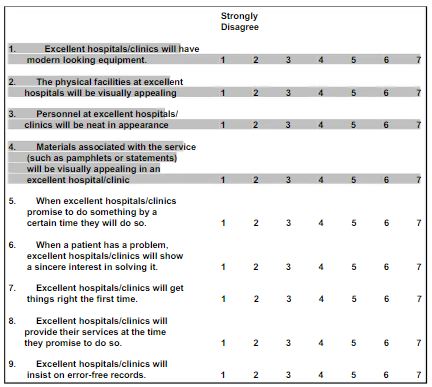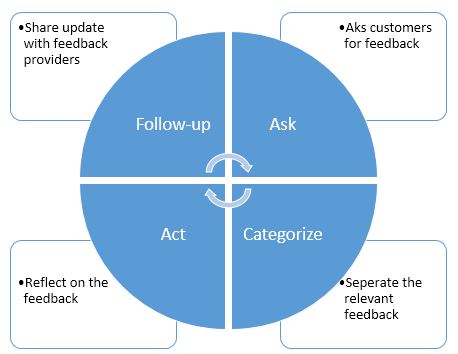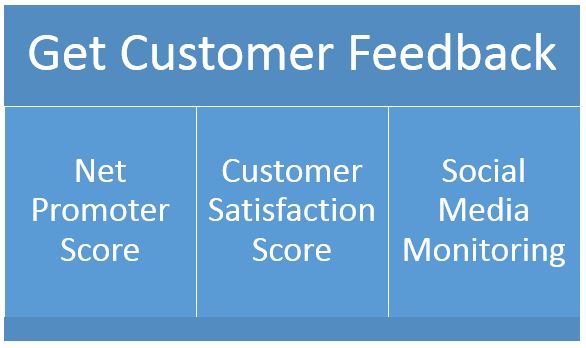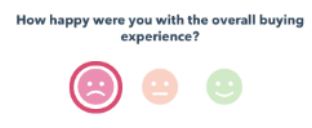Introduction:
Importance of Managing Service Quality in the Tourism Sector will be stated in this report, including ways of managing service quality. Delivering quality services to customers in the hospitality industry plays an important role because the industry itself is extensively service oriented. The writer of this report is a quality management consultant for Visit Britain and has been appointed by a company, namely The Canary Wharf Hotel. The writer is assigned to make a report for the management team covering a wide range of potential customer service-related complaints. This is a three-star rated hotel established in 2000. Primarily, the hotel had 100 modern suite rooms (including gyms, spas and swimming pools) of standard, executive and premier qualities (Case Study). Recently, demand for services at the hotel has increased tremendously; as a result, staff and management teams have faced real difficulties to meet an increasingly wide range of needs and requests from customers. As a result, service quality has deteriorated, and a number of complaints have started to surge on social media sites and at user-generated content sites.
To address the above issues, this management report will be divided into four segments. The first two segments will critically analyse the importance of measuring service quality and adopting proper service quality methods. Section three will determine service delivery practices at the hotel company. The final section will advise a Customer Feedback System (CFS) Framework for The Canary Wharf Hotel.
You may also feel interested to read below blogs:
Resort Management Strategies of One&Only
Sustainable Tourism Planning for Costa Rica
Strategic Tourism Planning for Coastal Areas
Effectiveness of the Business Strategies of Crowne Plaza Hotel
Importance of managing and measuring service quality:
Law et al. (2011) revealed that service quality plays the most significant role in the hospitality industry, and therefore, a company engaged in the hospitality industry must have established methods of measuring service quality and understanding the importance of the subject. This section has evaluated the importance of measuring service quality and managing the same.
Importance of measuring service quality (SQ):
Chang, Gong, and Shum (2011) argued that service quality (SQ) is the difference between the perceived value (PV) that customers expect and the experienced value (EV) that a company provides. The difference between the two is called a service quality.
Based on the above definition, service quality can be structured in a formula:
SQ = EV – PV
Chang, Gong, and Shum (2011) revealed that quality of service should be perceived as positive if customers receive more actually delivered quality than their expectations. On the other hand, service quality should be perceived as negative if the expected quality of customers exceeds the delivered quality by the companies.
In the light of above analysis, Kapiki (2012) argued that it is high potential for a hospitality organization or any service-oriented organization to understand two issues: what customers demand, need and expect; and what the company is providing in reality. A critical evaluation and justification of these two factors will make difference between a highly successful hospitality company and a badly failed hospitality company. If the equation of SQ is applied in the scenario of The Canary Wharf Hotel, it can be found that service quality is negative. There are a number of complaints customers are making frequently which represent that customers are not getting the level of quality services as expected. The attitude and behaviour of the service employees also present information that they do not care for their customers. It is very much clear that The Canary Wharf Hotel has a negative SQ.
The above analysis clearly shows measuring service quality and the issues of service quality plays important role in any hospitality organization. In the below section, the importance of measuring service quality is analyzed.
Measuring service quality helps to know the needs, wants, demands and preferences of customers: The service quality equation (SQ = EV – PV) implies that a service company should know the expected values of the customers from a company. Davidson, McPhail, and Barry (2011) revealed that the pre-requisite to knowing the values expected by a customer is to know the needs, wants, demands and preferences of customers because understanding these issues in detail will help them to understand the underlying expectations of customers. When The Canary Wharf Hotel comes to know the needs, wants, demands and preferences of customers; it will help them to concentrate on developing the issues to increase customer satisfaction and expectation. Understanding needs wants, demands and preferences will also help Canary Hotel to know changing trends among customers (Pizam, 2012). As a result, this knowledge will better equip the hotel company to bring strategic changes in their product offering and services to cope with changing future.
Measuring service quality provides information about customers’ perception towards the brand: Tsaur, and Tang, (2013) stated that knowing customers’ perception of a brand from a customer’s point of view plays a great role in understanding the brand value and level of quality. This knowledge of customers’ perception of the brand is further helpful for a hospitality company because the industry itself is service oriented. In light of the above analysis, The Canary Wharf Hotel should know the perception of customers from their point of view and such understanding will be of great support for the company to make required changes in the service quality. The case study of The Canary Wharf Hotel revealed that customers still have a good perception of the hotel, but the situation is getting worse due to repeated incidents of lower-quality delivered services. It is high time that the hotel company took the required actions.
Provides data on how to improve performance: Above analysis and the SQ equation (SQ = EV – PV) clearly show that, a company’s efforts to know service quality help a hospitality company to know customers’ perception towards the brand; and their needs, wants, demands and perception about hospitality services. All these data play a big role in helping a company understand how to improve performance in the market through delivering customer-engaging services and offers. As a result, The Canary Wharf Hotel will come to understand that customers should be kept happy and satisfied and employees should expose ownership in their attitude.
Importance of managing service quality (SQ):
Bowie et al. (2016) argued that managing service quality in the hospitality industry is a highly important issue because service quality issues directly affect customer loyalty, customer satisfaction and customer engagement. In the below section, the importance of managing service quality is analyzed.
Service quality affects customer Loyalty: When customers get quality services from hotels it builds customers’ loyalty toward the company (Jauhari et al., 2012). Companies fulfil customers’ demands by delivering quality services, and customers choose the company because they know that they will get satisfactory services from the chosen company. Canary Wharf Hotel will be capable of enhancing customers’ loyalty by delivering quality services. Being loyal, customers will come to the hotel again and again. Customers will suggest their relatives, friends or known people visit Canary Wharf Hotel which will increase their reputation. Service quality will develop customers’ loyalty and customers will repurchase their services. By ensuring increased repurchase of their services, Canary Wharf Hotel will be capable of increasing its profitability.
Service quality can assure a happier environment: By providing quality services, employees will get an appreciation of their effort and will stay motivated which ensures a more comfortable environment (Tsaur et al., 2014). Customers will express their satisfaction with the company when they get quality services and praise the services of the employees of the company. It motivates employees because they get an appreciation for their work, which creates a happier environment in a company. Canary Wharf Hotel will be able to create a happier environment by providing quality services to its customers. Customers will be satisfied with Canary Wharf Hotel and will appreciate the employees of the hotel which will motivate the employees. As a result, employees stay happy, and the environment will remain happier Canary Wharf Hotel environment happier, and the company do not need to invest more to make the environment happier.
Service quality can also generate a sense of security among customers: Quality hospitality services make customers feel secure within the hotel (Shahin, and Dabestani, 2010). Employees behave friendly with customers when they provide quality services from arrival to departure, which increases customers’ trust in the hotel. Canary Wharf Hotel will be able to make customers feel secure within their hotel by ensuring quality services. Customers will not worry about their security when they will get quality services because it makes sure that employees will take care of themselves. As a result, customers will trust Canary Wharf Hotel more and visit more which will increase revenue.
Value for money is important: Quality services deliver value for customers’ money that, makes them highly satisfied and loyal to the hospitality industry (Langvinienė, and Daunoravičiūtė, 2015). Canary Wharf Hotel will be able to create value for customers’ money which will attract the customers toward their hotel more. Even the hotel can provide discounts, gift cards, free snacks or candy, free fruits, or other services that will help the company to create value for customers’ money. Customers will get unexpected services from Canary Wharf Hotel, which will make them feel that the money they have spent on the hotel is worth it. As a result, customer satisfaction will be higher, and Canary Wharf Hotel will be able to increase its profit level.
Service quality management methods:
Shahin, and Dabestani (2010) stated that understanding the gap between customers’ expectations and perceived quality plays a huge role in understanding the underlying lacking a company might have in terms of delivering the expected values and qualities to customers. There are different methods of knowing the gaps in service qualities; the methods are analyzed and justified for The Canary Wharf Hotel in the below section.
Method 1- SERVQUAL: Service quality refers to the difference between customers’ expectations and the services actual service performance they get from hotels, and SERVQUAL is one of the most effective ways of measuring service quality (Zaibaf, Taherikia, and Fakharian, 2013). In this way, companies make questionnaires to ask questions to their customers and find out whether their service is fulfilling customers’ expectations or not. Canary Wharf Hotel have to make a questionnaire with the questions they want to ask their customers about their services. The hotel can make a questionnaire by following the example of the service Questionnaire.

It will help Canary Wharf Hotel to measure their ability to deliver promised services, the knowledge level and politeness of employees and other factors. The hotel should apply SERVQUAL to manage its service quality because it evaluates the service quality of the model on the basis of different contexts and many cultural backgrounds. The model will assist Canary Wharf Hotel in recording customer perceptions of service quality and it will make them capable of visualizing the records. As a result, the hotel will find out its strengths and weakness, which will help them to utilize the strengths and prevent weaknesses to be successful in future. The drawback of the model is the hotel will have a subjective view because the outcome depends on the people who are using the model.
Method 2- Mystery Shopping: Mystery shopping is the strategy of measuring quality service where companies appoint undercover customers to visit their hotels and learn about the quality of services that the employees provide (Zaibaf, Taherikia, and Fakharian, 2013). Undercover customers can experience the services of the hotels, which helps hotel companies to evaluate the service quality easily. Canary Wharf Hotel will be capable of effectively measuring its service quality by applying the mystery shopping model. The company will appoint undercover customers to send to their hotel. The undercover customers will act like normal customers, and they will observe the provided services of the hotel. The hotel should conduct the model to get effective results. Mystery shopping will assist Canary Wharf Hotel in getting feedback from customers’ perspectives and it will make the efficiency-increasing program easy because the company will think according to customers’ requirements. The hotel will be informed about the quality of their customers’ performance, which will help them to identify the mistakes employees make while providing services. As a result, Canary Wharf Hotel can improve employees’ performance e and ensure service quality to make customers fully gratified. The drawback of the model is the hotel will depend on the feedback of the undercover customers, who may provide wrong information.
Method 3- Post Service Rating: Post-service rating is the process in which companies ask the customers to rate their services or share explanatory feedback to understand customers’ to evaluate their service quality (Lee et al., 2016). Canary Wharf Hotel will ask customers to rate their services, such as customers having to rate within one star from to star, where four-star and five-star will be considered as good rates and service quality. The hotel should apply this method to get ratings and understand customers’ satisfaction with their services, and the explanatory feedback will give proper direction about the services they should develop. Canary Wharf Hotel will be capable of understanding its customers and their need which will help them to be more customer-focused. By being more customer-focused the hotel will be able to increase sales.

Canary Wharf Hotel may face one problem if they conduct the model, which is customers can turn against their services, such as customers may demand a change and will be annoyed if the hotel does not bring the change to their services. The reputation of the hotel will be hampered if they fail to bring change according to customers’ needs.
Method 4- Follow-up Survey: Follow-up survey refers to the method of collecting ratings or feedback through an email survey (Fantazy, Kumar, and Kumar, 2010). Companies can have feedback from customers in detail, and other customers will not be able to see the feedback or rating. It will maintain the confidentiality of the feedback and rating. Canary Wharf Hotel will be capable of keeping the data and rating confidential if they use a follow-up survey. The email between the hotel and customers will not be published; therefore, the reputation of the hotel can be maintained through the model. Canary Wharf Hotel can have a historical overview of its services, and the hotel should conduct the model to measure its service quality. The hotel can send a SERVQUAL type of survey to the customers to collect feedback. The drawback of the process is customers may forget about their experience and provide feedback about other hotels.

Documentation Analysis: It is the approach where companies have to listen to respectively written or recorded service records to measure their services (Lee-Ross, and Lashley, 2010). Canary Wharf Hotel should use this approach because it will consume much time to find out the written records. Listening to recorded calls also needs much time. To save valuable time, Canary Wharf Hotel should not apply this approach, and the valuable time can be used for other important work, which will bring outstanding outcomes for the hotel.
Method 7- Social Media Monitoring: It is the method where customers are asked to give reviews on social media and review platforms (Wu, Fan, and Mattila, 2015). Canary Wharf Hotel should use this process to measure their service quality because most people use social media such as Facebook, Twitter and others. Collecting reviews through social media and review platforms like Trip Advisor is the easy way. The hotel should adopt the process to get many reviews because it has become a trend to give a review on social media and review site that encourages customers to give the right review. The drawback of the process is feedback is visible to the public, and the negative reviews may affect the customers’ decision who decided to visit Canary Wharf Hotel.
Service delivery practices and their impact on front-line employees, their engagement and on managerial implications:
Chen and Hu (2010) implied in their research that the hospitality industry could not sustain itself if they did not put the highest importance on employee satisfaction and engagement. They further added that employees should play the greatest role in this regard because they come to direct contact with the customers and visitors. Therefore, The Canary Wharf Hotel must have a set of well-established service delivery practices. These are critically analyzed and evaluated below:
Place the highest priority on customers’ satisfaction: Rao and Sahu (2013) found that a hospitality company should place the highest priority on the satisfaction of the customers in terms of meeting their needs, expectations, and quality. In reality, The Canary Wharf Hotel didn’t put the highest priority on customers. Employees at the hotel show the rules and internal limitations instead of solving the problem at first-hand. As a result, customers will get the wrong message. To place the highest priority on customers’ needs and expectations, front-line employees need to be more proactive and congenial in dealing with them. For example, they should receive customers with warm-welcome and smiling faces. They should also make sure that no customers are unaddressed (with what happened in the case of The Canary Wharf Hotel). Management should establish this practice as a top priority and orient the employees to follow the same.
Deliver more services than promised: Singh and Prasher (2019) revealed in their research that delivering more congenial and quality services to customers and visitors than their expectations makes customers and visitors happier because they receive more than promised. Front-line employees at The Canary Wharf Hotel should be strategic in explaining and communicating with the customers while promising about services and qualities. In reality, it was found that visitors and guests at The Canary Wharf Hotel are promised more and delivered less; as a result, they are very unhappy, which is reflected in their negative comments on the Facebook page of the hotel company and on Trip Advisor. The management team should train the employees about how to strategically communicate with customers while promising services and quality.
Address every aspect of customers’ complaints posted on social media: Wong and Fong (2010) stated that carefully dealing with customers’ complaints posted on social media plays a great role in understanding customers’ perspectives of the company. It helps the company to reflect on its mistakes. However, the situation is different at The Canary Wharf Hotel, where only the manager is responsible for addressing the complaints posted on social media, and he occasionally visits those sites. Management should make sure that multiple people are engaged to deal with the issues. Front-line employees should carefully take care of mistakes posted on social media, as not to occur in future.
Adopt innovative technologies for in-house experience: Ford, Sturman, and Heaton (2011) stated that hospitality industries should adopt innovative technologies, systems and devices in their rooms. This will increase customers’ attraction and perceptions of the hotel company. Free Wi-Fi is no more an innovative approach to technology. The Canary Wharf Hotel should adopt innovative devices such as Alexa for Hospitality which provides a number of services such as controlling the room’s lighting and temperature, finding nearby restaurants and attractions even to check out. Management of The Canary Wharf Hotel should adopt this technology in their hotel, and they should train the employees to be used to the systems.
Empower the employees and keep them happy: Hollins, and Shinkins (2009) revealed that a hospitality company should empower their employees and keep them in cheerful mind always because they deal with tourists and visitors. This is one of the most important factors in the hospitality industry. Practically, The Canary Wharf Hotel’s employees do not demonstrate employee empowerment and happiness among themselves. Top management must take proper actions to empower responsible employees to help the customers serve better and solve problems. Front-line employees, on the other hand, should also be proactive in dealing with customers, they should show workplace ownership. For example, when a customer shares a problem, employees must not say to talk to the manager. Rather, it is his responsibility to solve the problem either by himself or by talking to his seniors.
Provide employees with quality training in service delivery: Hudson, and Hudson (2012) argued that the hospitality industry should put their employees on regular training and development initiatives because new concepts and services are regulating being added to the industry. Management should ensure that employees receive quality training from expert people, not from supervisors, as seen in The Canary. On the other hand, employees should also be proactive in attending the training programs and learning new ideas and concepts.
Adobe analysis clearly shows that The Canary Wharf Hotel has a number of limitations in how they deliver the services to their customers. The company should implement the above service delivery practices to solve the running brand image crisis as shown in the case study.
Customer Feedback System (CFS) Framework:
Liu, Jiang, and Zhao (2019) revealed in their research that customer feedback collection system plays a significant role in the hospitality industry in improving the performance of the company. They further argued that the system should be as such that the company can continuously review and reflect on the collected feedback. Kwok, Xie, and Richards (2017) have suggested a framework which will be of great importance for hospitality companies to know the problems and to reflect on the problems for improvement.

Ask customers for feedback:
Kwok, Xie, and Richards (2017) found that the first step in the framework of the Customer Feedback System (CFS) is to know the feedback from customers because understanding the perspectives of customers is important. The authors also revealed that there are mainly three ways to get feedback from customers:

Promoter Score: It implies how much interested the target customers are to recommends the services to others. The questions can be asked in below format:

Collection of information as per the above method on the internet will help the company to evaluate the perspectives of customers about The Canary Hotel. The advantage of this method is that it finishes quickly; however the problem is that customers cannot provide any qualitative opinion (Hu, Chen, and Lee, 2017).
Satisfaction Score: This implies how much-satisfied customers are about the services.

The Canary can send a survey link to customers after their visit to the hotel. The above information will help the company to get valuable information about satisfaction scores.
Social Media Monitoring: Kwok, Xie, and Richards (2017) revealed that there are numerous social media sites on the internet, such as Facebook, Twitter, Trip Advisor, Yelp and many others where The Canary should regularly visit and find customers’ comments on the services. This approach will provide the company with valuable and much more information to the hotel than before. As a result, there is more to reflect for further improvement.
Categorize:
Kwok, Xie, and Richards (2017) argued that all the information found on the above approaches might not be important and relevant. Therefore, at this stage, The Canary should categorize the relevant and important information. Based on the case study, The Canary should categorize and emphasize information from previous customers, Comments posted on the Facebook Page the hotel; comments posted on Trip Advisor (if social media monitoring), comments related to quality and comments related to dissatisfaction.
Categorization of information will help The Canary to put emphasis on the right place.
Act and reflect:
The most important section for The Canary is to reflect on the limitations based on the findings of the market survey. It should ensure that the limitations, complaints and quality of service-related issues should be properly taken care of. The Canary should implement the recommendations made in the previous sections related to the training and development of employees, empowering the employees etc. Overall, Canary should put the highest emphasis on customer satisfaction.
Follow-Up:
This is the step where the company has the option to convey the update to the customers and get another opportunity to reassess the service quality again by inviting the customers to check again. Here, The Canary should communicate with their surveyed/communicated customers to inform them about the actions taken based on their observations. The hotel company can again invite them to reassess the quality by making another visit to the hotel. This will provide an excellent opportunity for the company to check if improvement has really been made. If it is found that the customers are complaining again, then the company should evaluate the problems and take preventive measures.
Conclusion:
The hospitality industry is highly dominated by the quality of services. Therefore, companies need to be very careful to make the customers satisfied and happy. It has been found in the above research that managing and measuring service quality informs customers about their perspectives of customers. A range of service quality management methods has been suggested, including SARVQUAL, Mystery Shopping etc. Additionally, the report has suggested a number of quality delivery practices; most importance has been placed on empowering the employees, helping them take ownership, training the developing and putting the highest importance on customer satisfaction. The report has also designed and advised a framework. The most important feature of this framework is that it will help the company to find customers’ feedback in the most convenient approach. Secondly, the framework is a cycle which means the company has the option to reassess the customers’ feedback once one cycle is finished.
References:
Hudson, S. and Hudson, L., 2012. Customer service for hospitality and tourism. Goodfellow Publishers Ltd.
QuestionPro Survey Software, 2020. 15 Service Quality Survey Questions + Sample Questionnaire Template. Retrieved from: https://www.questionpro.com/survey-templates/service-quality-evaluation/ [Assessed on: 6 June 2020]
Scribd Inc, 2020. QUALITY OF SERVICE Questionnaire. Retrieved from: https://www.scribd.com/doc/49857127/Servqual-Questionnaire [Assessed on: 4 June 2020]
Singh, A. and Prasher, A., 2019. Measuring healthcare service quality from patients’ perspective: using Fuzzy AHP application. Total Quality Management & Business Excellence, 30(3-4), pp.284-300.
User like, 2016. 9 Practical Methods for Measuring Service Quality. Retrieved from: https://www.userlike.com/en/blog/measuring-service-quality [Assessed on: 5 June 2020]
Zaibaf, M., Taherikia, F. and Fakharian, M., 2013. Effect of perceived service quality on customer satisfaction in hospitality industry: Gronroos’ service quality model development. Journal of Hospitality Marketing & Management, 22(5), pp.490-504.
